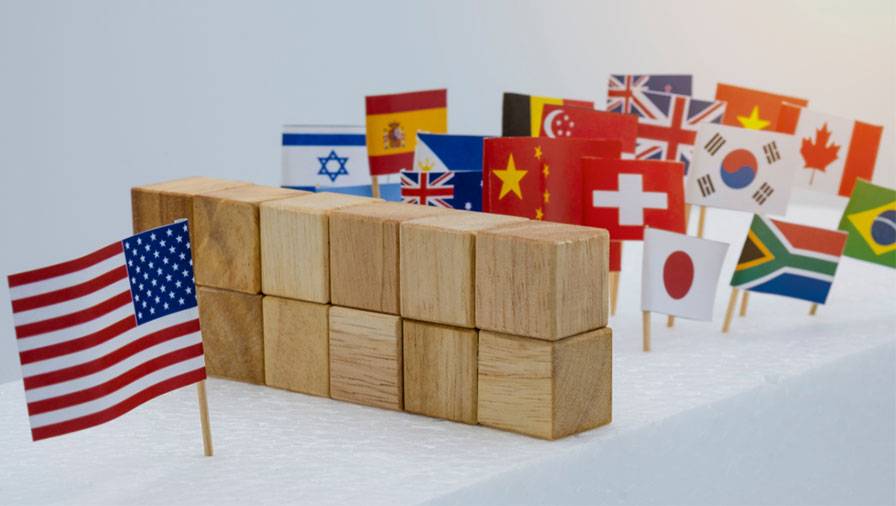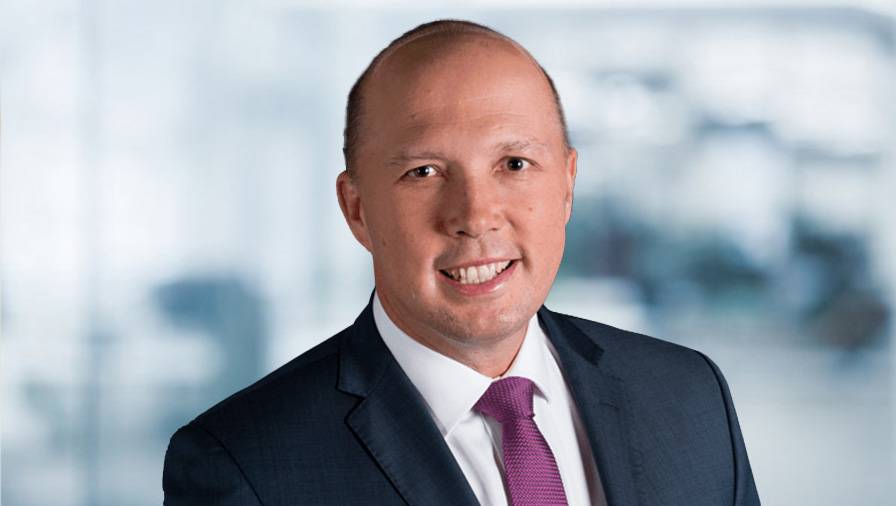Trump warns of ‘transition problems’, Wall Street declines
And former UK PM Gordon Brown suggests an ‘economic coalition of the willing’ to counter Trump tariffs.
US President Donald Trump.
And former UK PM Gordon Brown suggests an ‘economic coalition of the willing’ to counter Trump tariffs.
US President Donald Trump.
Happy Friday and welcome to the end of another big week of international business and political news.
First up, US President Donald Trump said his tariffs may cause “transition problems” but remained confident with his plan, after the White House confirmed US tariffs on China rose to 145%, Bloomberg reported.
“There’ll be a transition cost and transition problems but, in the end, it’s going to be a beautiful thing,” Trump said. “We’re in very good shape.”
BBC North America correspondent John Sudworth said if neither the US or China backed down, the global economic future would look "very different, possibly very dangerous".
"The world's two biggest superpowers may find themselves locked in a fight for winner-takes-all economic supremacy."
Wall Street fell after a historic rally the previous day, after Trump paused the tariffs for 90 days on most countries, excluding China. Earlier, the S&P500 dropped more than 6%, before regaining some ground, with investors set for more trade unease.

Former UK Prime Minister Gordon Brown called for an “economic coalition of the willing” to respond to Trump’s tariffs with coordinated economic policies, including lowering interest rates, the Guardian reported.
He said it was also the perfect time to renew ties with the European Union after Brexit. Brown said world leaders needed to step up their collective action. “We are seeing a simultaneous breakdown in economic and geopolitical orders.”
In other world news, the UK and France planned to accelerate the military planning for a ‘coalition of the willing’ for Ukraine to focus on the security of its air, sea, and land, Bloomberg reported.
The UK and EU had discussed several initiatives to boost aid to Ukraine, as well as security guarantees in an eventual peace deal with Russia.
In business news, luxury brand Prada has agreed to buy smaller rival Versace to unite two of the biggest designer fashion labels, the BBC reported. The deal was estimated at US$1.36 billion.
Prada chair Patrizio Bertelli said the aim was to continue Versace's legacy by celebrating and re-interpreting its “bold and timeless” aesthetic.
The Prada Group already owns several other designer labels including Miu Miu and luxury footwear brand Church’s.
The deal included the brand's debt and followed a downturn in which Versace had been operating at a loss because of a slowdown in demand for luxury fashion. Bertelli said the Prada Group would provide Versace with "a strong platform".
Prada chief executive Andrea Guerra also said Versace had huge potential. “The journey will be long and will require disciplined execution and patience.”

Peter Dutton.
Over the Ditch, Opposition Leader Peter Dutton promised to abolish a new fuel efficiency law if he gets elected as prime minister next month, the ABC reported.
The scheme sets an annual emissions limit for car manufacturers to help Australia reach its net zero target. The New Vehicle Efficiency Standard is expected to come into force in July if Labor is re-elected.
Dutton said it was a “tax on families” who need a reliable car. “Instead of making life easier, Labor is making it harder and more expensive. A coalition government will scrap this tax, so Australians can keep more of their hard-earned money when purchasing a new car.”